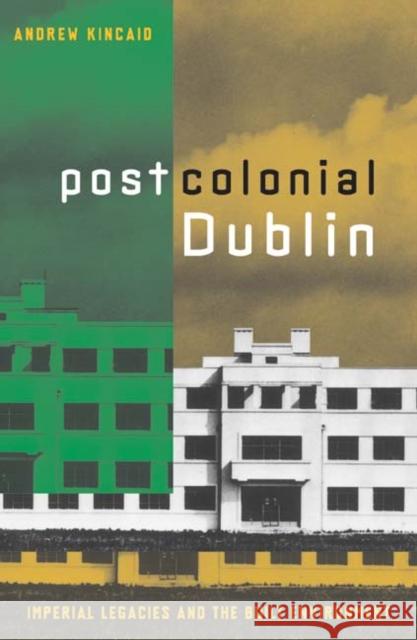Postcolonial Dublin : Imperial Legacies And The Built Environment » książka
Postcolonial Dublin : Imperial Legacies And The Built Environment
ISBN-13: 9780816643455 / Angielski / Twarda / 2006 / 267 str.
Postcolonial Dublin : Imperial Legacies And The Built Environment
ISBN-13: 9780816643455 / Angielski / Twarda / 2006 / 267 str.
(netto: 304,51 VAT: 5%)
Najniższa cena z 30 dni: 320,36 zł
ok. 22 dni roboczych.
Darmowa dostawa!
For hundreds of years, Ireland has been a testing ground for colonizing techniques. Postcolonial Dublin shows how perpetrators of colonialism have made use of urban planning and architecture to underscore and legitimate ideologies. From suburban development to building facades, the conflict between nationalists and colonialists has inscribed itself on Dublin's landscape. Andrew Kincaid illustrates how the architecture and urban planning of Dublin have been integral to debates about nationalism, modernism, and Ireland's relationship to the rest of the world. Looking at objects such as Londonderry's Market House, Patrick Abercrombie's Dublin of the Future, and the urban renewal project of today's Temple Bar, Kincaid highlights Ireland's colonial history and the significance of architecture in the evolution of national identity. In doing so, he demonstrates how ideology "spatializes" itself. Postcolonial Dublin engages the prevailing historical representations of Irish nationalism, arguing that the evolving city reflected a debate over who would hold the reins of power. Bringing the tools of literary criticism and postcolonial theory to bear on the field of urban studies, Kincaid places Dublin at the forefront of debates over modernism, modernity, and globalization.Andrew Kincaid is assistant professor of English at the University of Wisconsin, Milwaukee.











